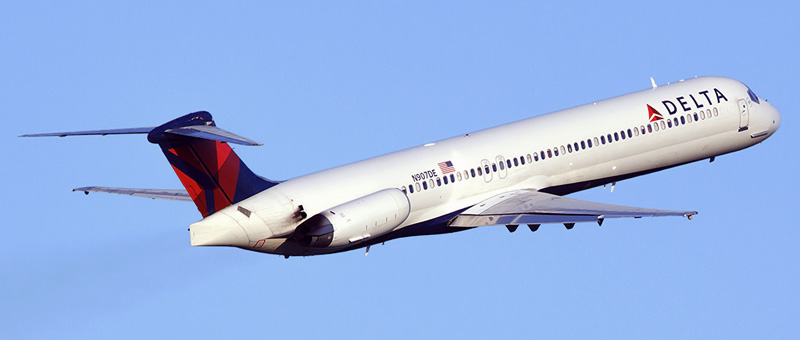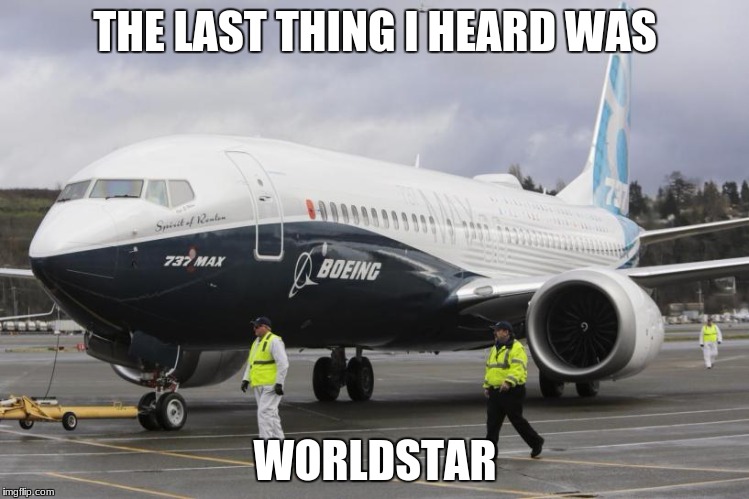You are using an out of date browser. It may not display this or other websites correctly.
You should upgrade or use an alternative browser.
You should upgrade or use an alternative browser.
Bombardier Wins
- Thread starter SeanD
- Start date
jtrain609
Antisocial Monster
Cptnchia
Dissatisfied Customer
Interesting the turn of events. 10 years ago it was all Airbus hate and their stupid government subsidized airplanes, and "if it ain't Boeing, I ain't going!"
Nowdays it's all Airbus love and Boeing hate.
Shiney Airbus Syndrome. I keep it reels in the last RealMan’s (tm) airplane!

Hey, you fly an Airbus too bud!
Don't get all heady on us, Brophy!
Well played! Lol
Shiney Airbus Syndrome. I keep it reels in the last RealMan’s (tm) airplane!

Also well played! But when those retire, then what will you go to?
Lawman
Well-Known Member
Hey, you fly an Airbus too bud!
Don't get all heady on us, Brophy!
Well played! Lol
Shiney Airbus Syndrome. I keep it reels in the last RealMan’s (tm) airplane!

Also well played! But when those retire, then what will you go to?
The bar.
Sent from my iPhone using Tapatalk
Maximilian_Jenius
Super User
Shiney Airbus Syndrome. I keep it reels in the last RealMan’s (tm) airplane!

MD-90 > MD-88
wheelsup
Well-Known Member
Boeing didn't sell their 787 for half their manufacturing costs. Offering a discount off "list" price is different than selling something for $5 when it costs $10 in materials and labor to make.Not quite. There's a demand for aircraft of that size, which happens to be between present lines of business for different manufacturers. Nobody pays list price for a transport aircraft. I certainly understand that Bombardier needed a significant sale of the C100 series to keep the program active, and that led them to discount significantly to keep Delta at the table. Plus, Bombardier had evidently already lost out on a sale to United. Damn few legacy buyers these days.
They may take a loss, but it would be far less than to cancel the program and eat the entire cost of development. Look at what Boeing went through on the early 787s with massive cost overruns and delays. But they stuck with it, and are about to start using black ink on the series now.
There's a different problem for both Airbus and Boeing when they try to bring a new smallest version of an existing aircraft to market. Their good design engineers have sized everything for the larger weight - wings, engines, and all the rest. You can't just throw it in the Xerox machine and push the 'reduce' button. That leaves the new smallest version with more weight and cost, not optimized for the payload or number of passengers, and that in turn makes the smallest version less economical to operate. True for both the A-319 and 737-Max 7. (The reverse is less true - up-sizing often requires just strengthening or adapting where needed. Think landing gear heights on 737s with bigger engines.) A clean-sheet design is virtually always more efficient when everything can be optimized.
They stopped making the 717 because it was not cost effective. It was a heavy and complicated airplane for the size. There is a reason not many were put into service.
SeanD
Well-Known Member
Well played! Lol
Also well played! But when those retire, then what will you go to?
C Series probably
 They are making a stretch version also.
They are making a stretch version also.SlumTodd_Millionaire
Most Hated Member
They stopped making the 717 because it was not cost effective. It was a heavy and complicated airplane for the size. There is a reason not many were put into service.
You clearly know not what you speak of.
SeanD
Well-Known Member
You clearly know not what you speak of.
I read that airlines are searching the globe for 717s.
Nick
Well-Known Member
I read that airlines are searching the globe for 717s.
They are a hot commodity now, but at the time Boeing saw it as a redundant airplane to their 737-600/700.
The 737-600 ended up barely being delivered anywhere, with only 69 ever made. So, who knows if the 717 would have kept selling if they kept the line open. Maybe, or maybe not so much.
At this point though, I think the 717 value is the price itself -- dirt cheap. If all you need is something in the ~110 seat range for 1-2 hour flights, it's perfect.
It has no range whatsoever in comparison to everything else it's size. But there are plenty of routes where you don't need the range anyway. Those segments are the 717's forte.
Cherokee_Cruiser
Bronteroc
Gee, Boeing, guess you shouldn’t have gotten all uppity and canceled the 717 line to favor your crappy 737 product.
Wait a minute, ain't no one (except Airtran) that went crazy bonkers for the 717. That's like looking back at a guy who went to Pan Am in 1980 and saying "wow, you shoulda gone to Delta!"
When the MD95 became the 717, Airtran went in and took them. TWA ordered 50 717s. American bought TWA and one of the first things they did was cancel the order. Midwest Express ordered some. Here's the orders and deliveries, but most important to note the amount (or lack thereof) of orders:

For an aircraft manufacturer, a production aircraft has to be produced every month. They can increase or reduce the number of airframes coming out of the factory, but they are made. If airlines aren't ordering that specific model then it's gonna be shelved. That's why Airbus was in trouble with the A380 line. It is very expensive to keep an aircraft line open without anywhere for those planes to go, and if they can't sell them then it's a hunk of metal collecting dust. Looks like Emirates just saved the A380. You can't blame Boeing for shutting down the 717. No one wanted it so they responded accordingly. Now oil came crashing down, RJs are too expensive to operate because their costs have gone up, too many lifers, and 1500 hr rule means having to pay a lot more to attract pilots. So airlines like Delta are putting the 717 in markets and taking inefficient RJs out of those markets.
It's simple economics. Boeing made the plane and in that environment, Airtran took it, and 9/11 hit and no one wanted it anymore. You can't expect them to keep the 717 line open. Now 15+ yrs later, they dynamics have changed enough that some airlines are looking for a 100-110 seat jet. You can't look back and say Boeing should have just kept it open without selling it. That's not how aircraft production works.
Good for Delta for geting the C-Series, but make no mistake. The C-Series wasn't selling! Even before the tariff it still wasn't selling. Swiss and Baltic are literally the only ones out there flying this jet. We'll see how Delta likes it and whether the C-Series gains traction in the United States with other carriesr.
ClarkGriswold
Non Nutritive Cereal Varnish Engineer
Ya, they suck. Will need a second mortgage just to buy enough belts for a day of riding. #PRORMKThose trains & snowmobiles tho'
ClarkGriswold
Non Nutritive Cereal Varnish Engineer
Only Poo worth getting.I’ve been wanting a Freeride since they came out. Maybe when I get on that CA pay...
Boeing didn't sell their 787 for half their manufacturing costs. Offering a discount off "list" price is different than selling something for $5 when it costs $10 in materials and labor to make.
They stopped making the 717 because it was not cost effective. It was a heavy and complicated airplane for the size. There is a reason not many were put into service.
Man, that is some delicious revisionist history!
I read that airlines are searching the globe for 717s.
They are.
wheelsup
Well-Known Member
It's a niche airplane that had few orders.I read that airlines are searching the globe for 717s.
The E190 was introduced in 2005 time frame around the time the 717 was discontinued. It carriers 10 less pax in a two cabin config and weighs three tons less. Range is 30%+ logger and has 600 orders vs the 717's 150.

